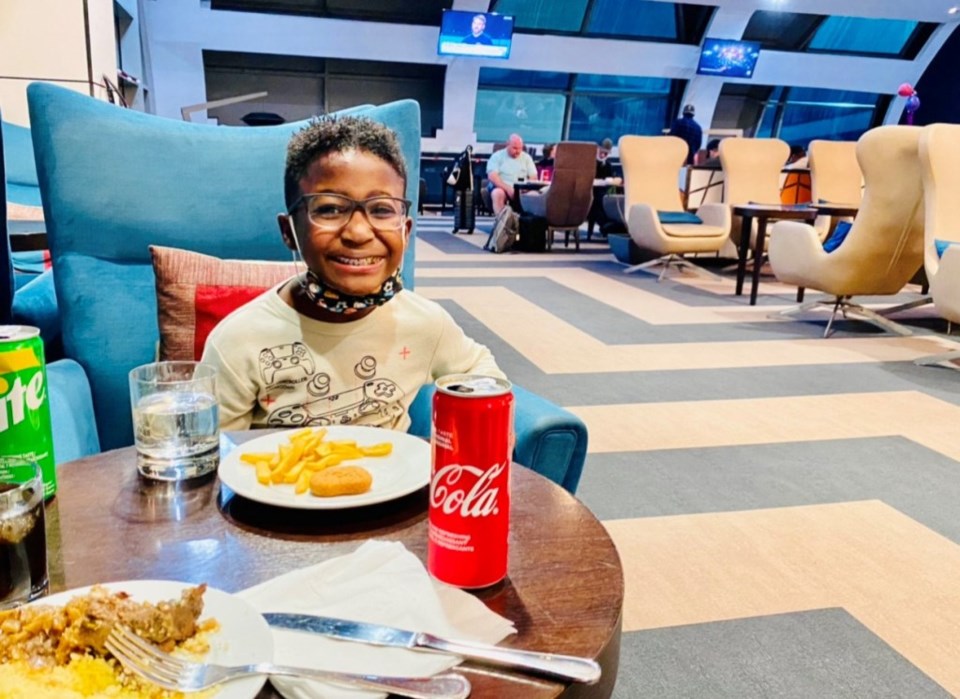
When Ayden Palmer was three years old, his parents noticed him sitting in silence. To any parent, a three-year-old not making a single noise is a pressing cause for concern. After his father called 9-1-1, he was told to take Ayden to Children’s Health right away.
When the Palmers arrived at Children’s Health Dallas, they were told Ayden had suffered a silent stroke, as a result of sickle cell disease.
“If we were an hour late, it could have damaged his major organs,” recalls Ayden’s mother, Tut John-Palmer. “He couldn't talk, he couldn't walk, and they had to pretty much clean his sickle blood and transfuse new blood… The doctors said ‘He may not be able to talk anymore. He may be handicapped for the rest of his life.’"
Three days later, Ayden woke up and was walking again. A few weeks after the stroke, Ayden underwent brain surgery in order to prevent a second stroke within two or three years of the previous stroke.
Today, Ayden and his family live in Prosper, where the now nine-year-old boy attends elementary school and is on the honor roll. He has a passion for video games and technology.
“He loves Roblox building,” says Tut. “He likes putting stuff together, he likes to code, he does a lot of computer coding. He was telling us ‘Hey, this summer, I want to be a YouTuber and show kids how to build Roblox and how to do Minecraft.’ He's a computer nerd.”
Before the stroke, Ayden first showed signs of sickle cell disease, a blood disorder in which a person’s red blood cells form in the shape of a C-shaped farm tool called a “sickle,” when he was born. His mother remembers him appearing jaundiced, with doctors informing her and Ayden’s father that they would have to test him for sickle cell disease in the future.
When Ayden was tested again, doctors determined he had the worst form of sickle cell disease, known as hemoglobin SS disease.
Sickle cell disease disproportionately affects the Black community, as well as other communities of color. While Ayden enjoys video games and the other favorite activities of a nine-year-old boy, his family is still fighting for a cure for his sickle cell. Since birth, Ayden has been registered on the Be the Match transplant list, with hopes that his family will find a bone marrow match for him.
“What they will do is, they'll pick the donor with the bone marrow,” says Tut. “They’ll filter the bone marrow, make sure it's clean, and put that in Aiden's bone marrow. Then, he can produce the right cells, which are not going to be sickle cells.”
A few years back, Ayden found an 8/10 match through BeTheMatch.org, however, his doctors advised his family to wait until they find a 10/10 match. Tut hopes that more people in the Black community will feel compelled to register and help support those within the community suffering from sickle cell disease.
With all the progress Ayden has made, the Palmers thank Children's Health for helping him live a happy, healthy life.
"Children's Health is like family to us," Tut says. "That's our second family."


![Top 5 Reads Of The Week [Jan. 6 - 10]](https://www.vmcdn.ca/f/files/localprofile/images/news/img_3099.JPG;w=120;h=80;mode=crop)
